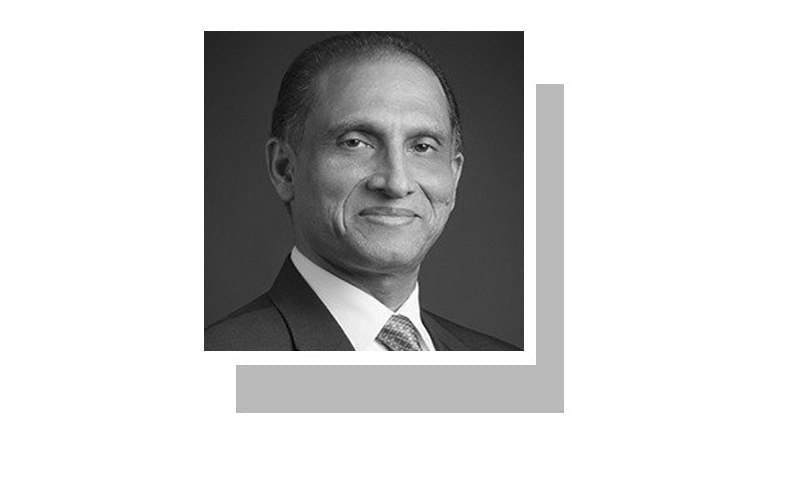RECEP Tayyip Erdogan has won a third presidential term. His dominance of the Turkish political scene for over two decades has been marked both by enviable successes and trying challenges.
He shot into prominence when he was elected mayor of Istanbul from 1994 to 1998. As mayor, he introduced high standards of urban good governance in Istanbul, resolving chronic problems of water shortage, pollution and traffic jams. This writer was a regular visitor to Istanbul during the 1990s and witnessed this transformation first hand.
After co-founding the conservative, right-of-centre Justice and Development Party in 2001, Erdogan led it to a landslide victory in 2002, going on to serve two terms as prime minister from 2003 to 2014. During this time, Turkiye’s economy registered high growth rates, and the country emerged as an important regional power. AKP won three consecutive general elections, each time receiving more votes than in the previous poll.
In 2014, Erdogan was elected president and then led in the 2017 referendum to change Turkiye’s parliamentary system into a presidential form of government. As president, he pursued a ‘rational’ foreign policy to situate Turkiye as a ‘pivotal’ country on the world stage. He is now starting his third presidential term amidst challenges relating to the economy, the currency and the aftermath of the recent earthquakes. He has vowed to bring down inflation to single digits and take Turkiye’s GDP to $1.5 trillion by end 2028.
Several factors explain his success. One, he followed an agenda of ‘constantly growing’ the economy, good governance and prevention of corruption that he pursued first as mayor of Istanbul and then as prime minister and president. Two, he possesses an amazing fighting spirit. In 2016, he mobilised people’s power to defeat a coup against his government by a section of the armed forces inspired by the Gulen movement. Three, he has an uncanny ability to turn adversity into opportunity. In 1999, he was sentenced to a 10-month prison term for reciting a poem in December 1997. On his transfer to prison, Erdogan dropped an album This Song Doesn’t End Here, which went on to become a best-seller.
Erdogan has been an ardent supporter of Islamic causes.
Erdogan is respected in Pakistan. Four of his feats have found appeal with the people. First, he has brought much-needed political stability to a country which had witnessed military coups and uneasy civil-military ties from 1960 to 1997. He shifted Turkiye from a messy parliamentary democracy to a stable presidential system, which offers better checks and balances.
Pakistan can surely learn from the Turkish experience of providing good governance at the grassroots. In this context, it would do well to create more provinces to achieve people-centred governance. Turkiye has 81 provinces for its 89 million-strong population. On the other hand, Pakistan, whose population is more than two and a half times Turkiye’s, has only four.
Second, Erdogan appreciates the pivotal role a strong economy plays in the life of a nation. He turned Turkiye into an economic powerhouse. Turkiye today is amongst the world’s top 20 economies.
Third, Erdogan has managed to rationalise the influence of the military in national politics by reforming, through institutional measures, the country’s national security council to serve as the state’s ‘supreme coordination board’ for security and defence policy.
Erdogan was able to bring equilibrium to civil-military relations mainly because he first established his credentials as a leader who could build a strong economy and deliver good governance.
Fourth, he has been an ardent supporter of Muslim causes. He grew up in the Turkish Sufi tradition and strikes a fine balance between his faith and Turkiye’s secular moorings. His passionate recitation of the Holy Quran often circulates on social media.
He has won the hearts of Kashmiris and Palestinians for his unequivocal support to them. Recently, he did not allow his delegation to attend the G20 tourism meeting organised by New Delhi in Srinagar because of the disputed status of Jammu & Kashmir.
He has also raised his voice against Islamophobia, and his leadership role in Muslim causes has endeared him to many in this country, among them those who avidly follow Turkish historical TV plays.
The above notwithstanding however, Erdogan’s style of governance is not without its share of criticism. Many describe his rule as autocratic and neo-Ottomanish.
He is also called out for human rights violations, particularly in the wake of the 2016 coup attempt. All this criticism has, however, not dented his popularity and acceptability to the people of Turkiye as was evident in the recent presidential vote.
The writer is a former foreign secretary and author of Diplomatic Footprints.
Published in Dawn, June 3rd, 2023
















































Dear visitor, the comments section is undergoing an overhaul and will return soon.